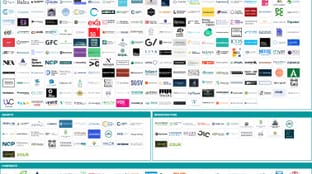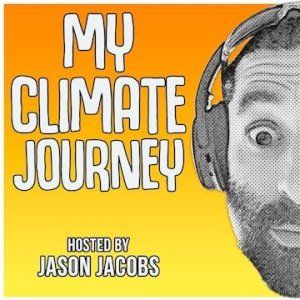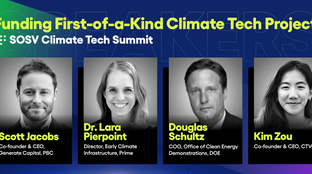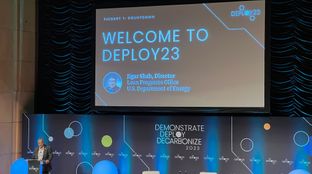
🌏 Who are the Climate Tech Investors?
A new interactive Climate Capital Stack Map
Jason Jacobs is the creator of My Climate Journey, a podcast for those seeking to better understand climate change and how to help.

Jason Jacobs is the creator of My Climate Journey, a podcast for those seeking to better understand climate change and how to help. He interviews people in the thick of tackling this problem, featuring individuals ranging from Pat Brown (CEO & founder of Impossible Foods) to Matt Eggers (investor at Breakthrough Energy Ventures). He previously founded Runkeeper, one of the largest fitness apps and communities, which eventually sold to ASICS in 2016. I’ve personally been very inspired to dig deeper into the issue of climate change through following Jason’s climate journey, so I encourage you to check out his podcast as well here.
I spent my whole career in the tech startup world, mostly in enterprise software. Runkeeper is the first company I started, and also the first one I worked on where the product was solving a problem in an area I was deeply passionate about (fitness). Once Runkeeper was acquired, I realized how much luck and privilege went into that and felt a duty to work on something important for the world, and I couldn’t think of a problem more important than climate change, or one that caused me more anxiety.
In the early days of Runkeeper, one of the most special things about it was the community that formed around the product, and MCJ feels very much the same way, in that regard. Runkeeper was for people serious about getting fit, but who weren’t necessarily sure about where to start or how to go about it. And while there were a wide range of fitness levels in the Runkeeper community, there was a collaborative and supportive spirit that transcended all ability levels. In that regard, there are a lot of parallels to MCJ, albeit in a very different domain.
I don’t necessarily have a favorite, they have all valuable parts of my process. That being said, I enjoyed the Matt Rogers one, as he has been a role model of sorts on my climate journey.
Well, I am constantly out talking to people and learning, and when I come across ones that have perspectives I am personally interested to dig deeper into and that I think listeners would find valuable, I invite them on the show. A lot of it is through referrals or inbound interest, though occasionally I will do outreach if I read something I am inspired by, for example, and contact the author. I also get quite a few suggestions in the MCJ slack room, which has been great.
Other than doing everything out of my house, I’ve been very fortunate in that it hasn’t impacted it that much. I think the pandemic will influence people’s behavior in a lot of ways going forwards, but it is too early to say how and I won’t pretend to know the answer. There is a path where the climate fight is set back meaningfully and another where it is accelerated. But either way, it is a fundamentally important problem to work on and I am here to stay.
I am most interested in looking at the big picture and the systems nature of the problem and figuring out how to unclog the arteries of the system to get it functioning better and moving faster. I am not deep in any one specific area, though I do have a natural bent towards innovation, as it is where I’ve spent my whole career and what I love doing. In terms of my understanding, it is a super hard and nuanced problem, but I am currently of the mind that it takes a village, and whether it is big things, small things, innovation things, policy things, activism things, etc, the most important thing we can do to accelerate the transition is to get more people to take the red pill and come to understand the nature of the problem and the importance of addressing it.
I feel in a way like Forrest Gump, I just went out on my journey without meaning to build community explicitly, but this amazing community has just kind of naturally coalesced around these efforts. A lot of it is that there happened to be a lot of other people like me heading out on their own climate journeys at a similar time, and by doing mine publicly, it enabled them to converge and find each other.
The most important asset of MCJ is the community. They tend to share 4 key characteristics: determination, ambition, optimism, and collaborative spirit. My goal with MCJ is to keep growing the community, keep growing its engagement levels, and providing more tools/resources over time to help the community be most effective in the climate fight, while finding a business model that enables me to feed my family and build a small team, so I can keep doing this for a long time while having an increasingly larger impact on addressing the problem.
Interested in more content like this? Subscribe to our weekly newsletter on Climate Tech below!

A new interactive Climate Capital Stack Map

Financing around first- or early-of-a-kind project risk

‘Government-enabled, private sector-led’ in action in Washington, DC